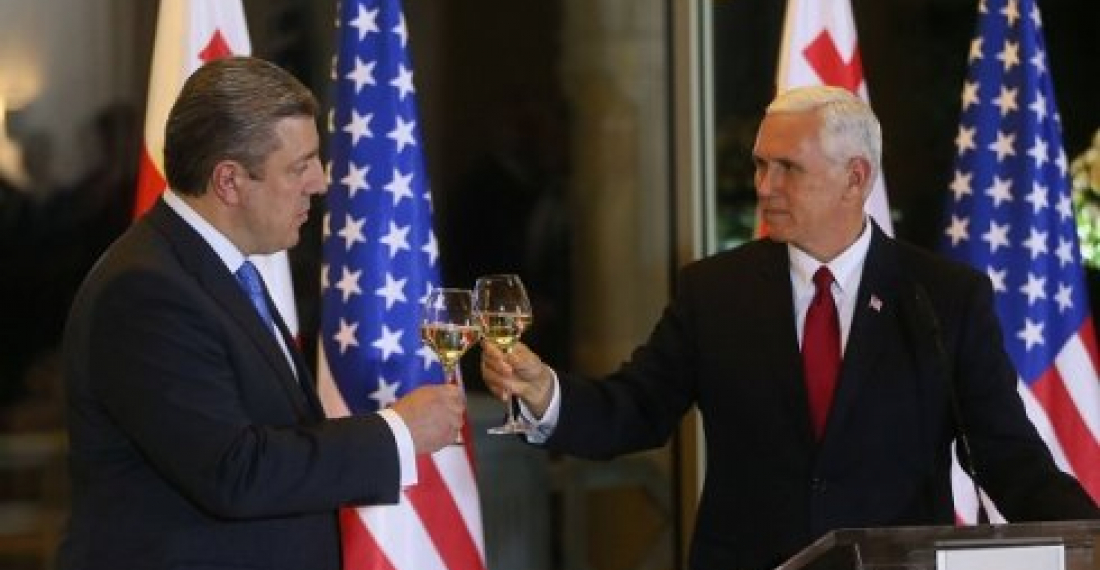The Vice President of the United States, Mike Pence expressed strong American committment for Georgia's independence and territorial integrity in various speeches during his short visit to Tbilisi as part of a European tour.
At a dinner on Monday evening (31 July), Pence told his Georgian hosts that US President Donald Trump sent him with a very clear message: "We are with you; we stand with you for freedom and for our shared values,"
Pence reiterated the message on Tuesday morning when he met representaitves of Georgia's opposition parties. "We received a clear support from the Vice President of the United Nations regarding the security of Georgia and the country's territorial integrity", Davit Bakradze, the leader of European Georgia, told journalists after the meeting with US Vice President.
"There was a very clear message that the new US administration and President Trump continue to pursue a clear policy in support of Georgia's security, which is the greatest guarantee that in the future Georgia will necessarily be united, will be a NATO member and a protected and successful country, such as Estonia today, from where the US Vice President has arrived, and such as Montenegro, where he goes from Georgia. The messages and the route of Mike Pence's visit unequivocally confirm the US strong support for Georgia's territorial integrity," Davit Bakradze told journalists.
According to him, during the meeting with the opposition, there was an open discussion and support for Georgia's NATO integration.
According to Davit Bakradze, the conversation touched upon the internal development of the country and the problems existing in this direction.
"The US has greatly interested Georgia to be a stable democracy. Stable democracy is the key to our security, Euro-Atlantic integration and economic development. All this depends on the democratic development of the country," said Davit Bakradze.
source: commonspace.eu with Interpress News Georgia
photo: US Vice President Mike Pence toasts Georgian Prime Minister Giorgi Kvirikashvili at an official dinner in Tbilisi on 31 July at the start of his landmark visit to Georgia. (picture courtesy of agenda.ge)







